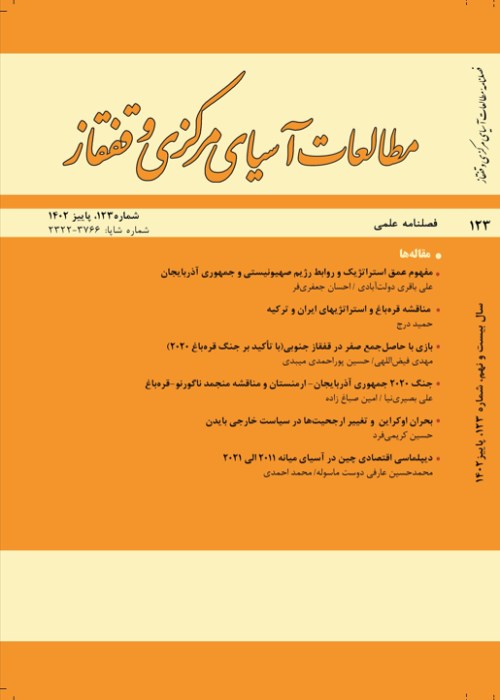Scientific Diplomacy ApplicationIn the Framework of US Foreign Policy in Kazakhstan
In a globalized world where actors especially emerging powers, are seeking to advance their position in the international structure, the use of soft power, has become increasingly important, especially in the face of scientific diplomacy.Under these circumstances, the United States, as a great power that also excels in the production and dissemination of advanced science and technology, uses this diplomacy to achieve its national goals and interests. This orientation is associated with certain features in relation to Central Asia and the Caucasus, and in particular to Kazakhstan; As the United States seeks to build constructive, purposeful, and framed cooperation with science diplomacy in a new strategic perspective, especially in the context of "Science for Diplomacy." This type of diplomatic cooperation is formed and developed based on the role of thinkers and academics and their relationship with the masses, academic and industrial centers. In this regard, the question is how scientific diplomacy has played a role in the US foreign policy towards Kazakhstan in the post-September period. In response, using the deductive research method through explaining and collecting information and scientific data, the authors examined the following assumption: In the framework of US foreign policy towards Kazakhstan after 9/11, scientific diplomacy in the form of "science for diplomacy" and by emphasizing the categories of "development-oriented cooperation" and "security-oriented cooperation" has helped to advance the foreign policy of this government. The findings of the article show that relying on scientific diplomacy in Kazakhstan, the United States has taken advantage of software opportunities to develop comprehensive relations with the country, especially in the political and security spheres, and defined Kazakhstan as a strategic allied player in the region to influence transnational equations.
- حق عضویت دریافتی صرف حمایت از نشریات عضو و نگهداری، تکمیل و توسعه مگیران میشود.
- پرداخت حق اشتراک و دانلود مقالات اجازه بازنشر آن در سایر رسانههای چاپی و دیجیتال را به کاربر نمیدهد.


